Related Research Articles

Florence Margaret Smith, known as Stevie Smith, was an English poet and novelist. She won the Cholmondeley Award and was awarded the Queen's Gold Medal for Poetry. A play, Stevie by Hugh Whitemore, based on her life, was adapted into a film starring Glenda Jackson.
"Dover Beach" is a lyric poem by the English poet Matthew Arnold. It was first published in 1867 in the collection New Poems; however, surviving notes indicate its composition may have begun as early as 1849. The most likely date is 1851.

The "person on business from Porlock" was an unwelcome visitor to Samuel Taylor Coleridge during his composition of the poem "Kubla Khan" in 1797. Coleridge claimed to have perceived the entire course of the poem in a dream, but was interrupted by this visitor who came "on business from Porlock" while in the process of writing it. "Kubla Khan", only 54 lines long, was never completed. Thus "person from Porlock", "man from Porlock", or just "Porlock" are literary allusions to unwanted intruders who disrupt inspired creativity.
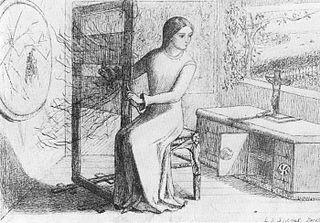
"The Lady of Shalott" is a lyrical ballad by the 19th-century English poet Alfred Tennyson and one of his best-known works. Inspired by the 13th-century Italian short prose text Donna di Scalotta, the poem tells the tragic story of Elaine of Astolat, a young noblewoman stranded in a tower up the river from Camelot. Tennyson wrote two versions of the poem, one published in 1832, of 20 stanzas, the other in 1842, of 19 stanzas, and returned to the story in "Lancelot and Elaine". The vivid medieval romanticism and enigmatic symbolism of "The Lady of Shalott" inspired many painters, especially the Pre-Raphaelites and their followers, as well as other authors and artists.
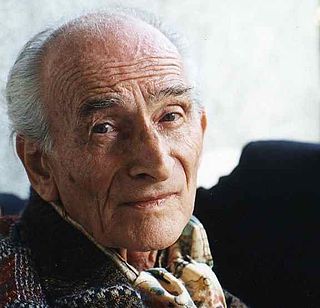
Balthasar Klossowskide Rola, known as Balthus, was a Polish-French modern artist. He is known for his erotically charged images of pubescent girls, but also for the refined, dreamlike quality of his imagery.

Ingrid Jonker was a South African poet and one of the founders of modern Afrikaans literature. Her poems have been widely translated into other languages.

"Lycidas" is a poem by John Milton, written in 1637 as a pastoral elegy. It first appeared in a 1638 collection of elegies, Justa Edouardo King Naufrago, dedicated to the memory of Edward King, a friend of Milton at Cambridge who drowned when his ship sank in the Irish Sea off the coast of Wales in August 1637. The poem is 193 lines in length and is irregularly rhymed. Many of the other poems in the compilation are in Greek and Latin, but "Lycidas" is one of the poems written in English. Milton republished the poem in 1645.
Stevie Davies is a Welsh novelist, essayist and short story writer. She was elected a fellow of the Royal Society of Literature in 1998, and is also a fellow of the Welsh Academy. Her novel The Element of Water was longlisted for the Booker Prize in 2001, and won the Wales Book of the Year in 2002.

"Ode on Melancholy" is one of five odes composed by English poet John Keats in the spring of 1819, along with "Ode on a Grecian Urn", "Ode to a Nightingale", "Ode on Indolence", and "Ode to Psyche". The narrative of the poem describes the poet's perception of melancholy through a lyric discourse between the poet and the reader, along with the introduction to Ancient Grecian characters and ideals.
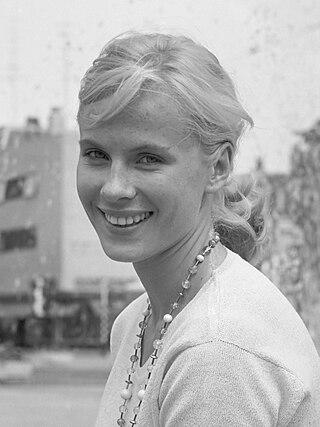
Berit Elisabet Andersson, known professionally as Bibi Andersson, was a Swedish actress who was best known for her frequent collaborations with filmmaker Ingmar Bergman.

The Bohemian Girl is an Irish Romantic opera composed by Michael William Balfe with a libretto by Alfred Bunn. The plot is loosely based on a Miguel de Cervantes' tale, La gitanilla.
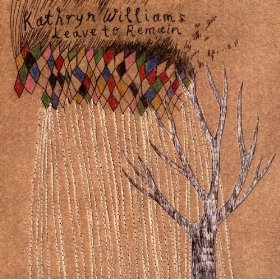
Leave to Remain is the sixth studio album by Kathryn Williams released on CAW Records on 1 October 2006. It was her first to feature Kate St John who would produce her next solo album, The Quickening, in 2010.

"I Might Be Crying" is a song by British singer-songwriter Tanita Tikaram, released on 23 January 1995 as the lead single from her fifth studio album, Lovers in the City.
Lines Written at Shurton Bars was composed by Samuel Taylor Coleridge in 1795. The poem incorporates a reflection on Coleridge's engagement and his understanding of marriage. It also compares nature to an ideal understanding of reality and discusses isolation from others.
The Task: A Poem, in Six Books is a poem in blank verse by William Cowper published in 1785, usually seen as his supreme achievement. Its six books are called "The Sofa", "The Timepiece", "The Garden", "The Winter Evening", "The Winter Morning Walk" and "The Winter Walk at Noon". Beginning with a mock-Miltonic passage on the origins of the sofa, it develops into a discursive meditation on the blessings of nature, the retired life and religious faith, with attacks on slavery, blood sports, fashionable frivolity, lukewarm clergy and French despotism among other things.
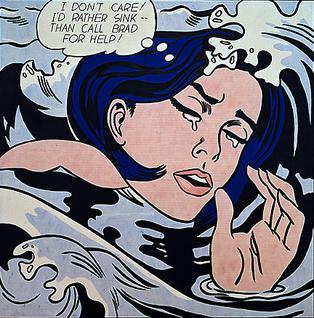
Drowning Girl is a 1963 American painting in oil and synthetic polymer paint on canvas by Roy Lichtenstein, based on original art by Tony Abruzzo. The painting is considered among Lichtenstein's most significant works, perhaps on a par with his acclaimed 1963 diptych Whaam!. One of the most representative paintings of the pop art movement, Drowning Girl was acquired by the Museum of Modern Art in 1971.

Not Waving But Drowning is a 2012 drama film directed by Devyn Waitt, starring Vanessa Ray and Megan Guinan. A small town girl moves to New York City, and laments being separated from her best friend while forging rewarding new relationships in director Devyn Waitt's feature-length companion piece to the short film The Most Girl Part of You (2011).

Beachy Head (1807) is a long blank verse poem by the English Romantic poet and novelist Charlotte Turner Smith. Smith wrote Beachy Head between 1803 and 1806, near the end of her life, when she was struggling with debt and ill health. As the poem was being composed, Britain was engaged in the Napoleonic Wars with France, and Beachy Head was regarded as a likely invasion point for the French army; nonetheless, Smith continued to support French revolutionary ideals. The poem was published the year after her death, as part of the volume Beachy Head and Other Poems. It was her last poetic work, and has been described as her most poetically ambitious work.
Alice Sutcliffe, born Alice Woodhouse or Woodhows, was an English religious writer. Her only known literary work, Meditations of Man's Mortalitie, or, A Way to True Blessednesse, was first published in 1633.
Sarah Pickstone is an English artist. She has won the 2012 John Moores Painting Prize and was awarded the 1991 Rome Scholarship in Painting to study at the British School at Rome.
References
- ↑ Sternlicht, Sanford V.Stevie Smith. Twayne Publishers (1990) p. 63.
- 1 2 3 Hotz-Davies, Ingrid. "My Name is Finis: The Loneliness of Stevie Smith". Rodopi (1994) p.233.
- ↑ Rose, Gillian. Mourning becomes the law: philosophy and representation. Cambridge University Press (1996) p.38.
- ↑ Walsh, Jessica. "Stevie Smith: Girl Interrupted"Papers on Language and Literature" Vol.40.
- 1 2 Severin, Laura. Stevie Smith's Resistant Antics. Univ. of Wisconsin Press (1997) p.71-72.
- ↑ Thaddeus, Janice."Stevie Smith and the Gleeful Macabre," Contemporary Poetry Vol. 111, No. 4, 1978, pp. 36-49.
- ↑ Smith, Stevie. Collected PoemsNew Directions Publishing (1983) pp 393-396.
- 1 2 James, Clive. As of This Writing. W. W. Norton & Company (2003) p.127.